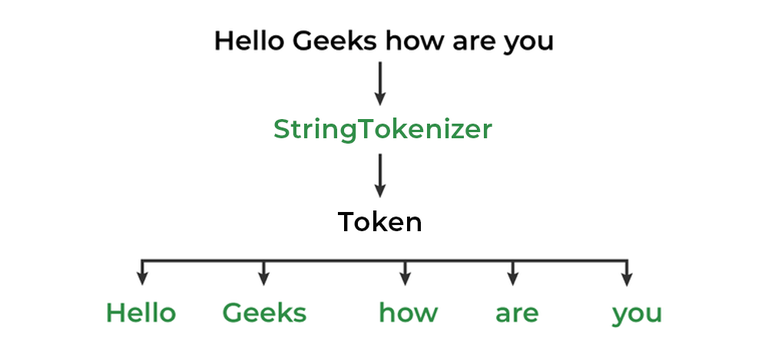What Is Unalterable Strings and Just How It Works
In the realm of programs, understanding the concept of unalterable strings is vital for producing robust and safe applications. Immutable strings describe strings that can not be changed after they are created, making sure data stability and predictability within the code. This basic concept plays a vital function in numerous shows languages and offers a distinct strategy to managing data. By discovering the ins and outs of exactly how immutable strings work, one can uncover a globe of advantages and possibilities that can elevate the top quality and effectiveness of software application growth.
The Essentials of Immutable Strings
Immutable strings, as a fundamental concept in programs, are character sequences that can not be altered as soon as they are produced. This suggests that as soon as a string is assigned a value, that worth can not be altered. In languages like Python and Java, strings are immutable objects, causing numerous ramifications in regards to memory monitoring and data stability.
One of the crucial benefits of unalterable strings is that they supply a feeling of protection in information control. Since the material of an unalterable string can not be changed, it makes sure that the initial information continues to be intact, reducing the danger of unintended changes throughout program execution (Why are strings immutable in Java?). This home additionally streamlines debugging procedures, as developers can rely on that as soon as a string is defined, its value will not be accidentally altered
When a brand-new string is developed based on an existing one, instead than customizing the original string, the new worth is kept individually. On the whole, comprehending the basics of immutable strings is vital for mastering programs concepts and enhancing code efficiency.
Benefits of Unalterable Strings
Building upon the protection and effectiveness benefits of immutable strings, their benefits prolong to boosting code integrity and simplifying concurrent programs jobs. By being unalterable, strings can not be customized after creation, which eliminates the threat of unplanned adjustments in the information they save. This inherent immutability ensures that once a string is produced, its value stays constant throughout the program's implementation, decreasing the opportunities of insects brought on by unanticipated modifications.
Furthermore, unalterable strings add to code integrity by making it easier to reason about the state of a program. Since strings can not be transformed, programmers can rely on that a string will certainly constantly hold the same worth, simplifying debugging and upkeep efforts. This predictability results in extra secure and reliable codebases.

Implementation in Programming Languages
Within various programming languages, the incorporation of unalterable strings is a basic element that affects how data is managed and adjusted within code frameworks. The application of immutable strings differs throughout various shows languages, with each language offering its very own systems to sustain this concept.

In contrast, languages like C and C++ do not have built-in support for unalterable strings. Designers in these languages need to by hand apply immutability by imposing policies within their code to stop direct alterations to string items.
Best Practices for Dealing With Unalterable Strings
When dealing with unalterable strings in programs languages like Java and Python, sticking to best methods ensures protected and effective data control. Among the vital ideal techniques is to make use of StringBuilder or StringBuffer rather of directly manipulating strings, specifically when managing comprehensive concatenation procedures. These classes give mutable options for string control, assisting to prevent unneeded memory appropriations and improving efficiency.
An additional ideal technique is to make use of string interpolation right here or formatting operates provided by the language as opposed to hand-operated concatenation. This not only improves readability but also aids in protecting against common challenges such as unintended string adjustments. Furthermore, when working with sensitive information such as passwords or API tricks, it is crucial to avoid storing them as simple text in unalterable strings. Making use of secure storage mechanisms like char varieties or specialized libraries for taking care of delicate information aids mitigate security dangers related to unalterable strings.
Real-world Applications and Instances
Exploring sensible executions of unalterable strings in different industries reveals their considerable effect on information stability and system integrity. In the health care industry, unalterable strings play an essential function in ensuring the security and confidentiality of client information. By avoiding unauthorized modifications to delicate info such as medical documents and prescriptions, unalterable strings assist maintain conformity with rigorous privacy regulations like HIPAA.
Financial organizations likewise take advantage of the immutable nature of strings to enhance the security of client data and deal records. Immutable strings aid stop fraudulence and unapproved alterations to monetary details, giving a durable defense against cyber threats and making certain the trust fund and self-confidence of clients.

Conclusion
Finest practices for working with unalterable strings include staying clear of straight alterations and making use of approaches that return find this new string things. Real-world applications of unalterable strings consist of information encryption, caching, and string adjustment jobs.
Unalterable strings refer to strings that can not be altered after they are created, ensuring information stability and predictability within the code. When a new string is developed based on an existing one, instead than changing the initial string, the new value is kept individually.In languages like Java and Python, strings are unalterable by default, meaning that when a string object is produced, its value can not be transformed - Why are strings immutable in Java?. Finest methods for functioning with immutable strings include staying clear of direct adjustments and utilizing methods that return brand-new string items. Real-world applications of unalterable strings consist of information security, caching, and string control jobs